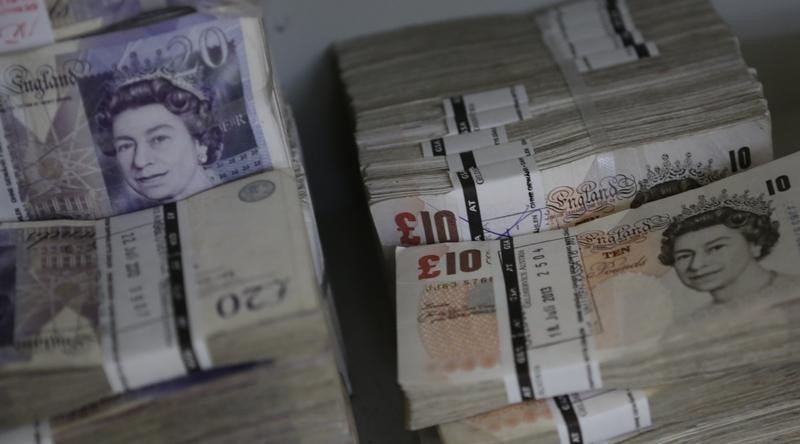Investing.com - The pound trimmed losses against the dollar on Thursday as data showing a surge in U.K. retail sales in May indicated that the economy is holding up despite uncertainty over next week’s European Union membership referendum.
GBP/USD was at 1.4162, up from earlier lows of 1.4121.
The pound found support after the Office for National Statistics said retail sales rose 6.0% in May from the same month a year earlier, the biggest annual rise since September.
Economists had expected a 3.9% increase.
April's retail sales growth was revised up to 5.2% from 4.3%, the ONS said.
Retail sales were up 0.9% from a month earlier, compared to expectations for a 0.2% increase.
Core retail sales, which exclude auto sales, were up 5.7% from a year earlier in May and rose 1.0% on the month, easily beating economists’ expectations.
The data came as a new opinion poll showed the Leave campaign in the lead ahead of next Friday’s Brexit referendum.
The IPSOS MORI poll, published in the Evening Standard newspaper, showed that the 53% of voters supported the Leave campaign compared with 47% support for the Remain camp, excluding undecided voters.
A number of recent polls have showed that the EU referendum race is tightening ahead of next Friday’s vote.
Data from betting odds supplied from Betfair on Thursday indicated that the implied probability of a Remain vote rose to 65% from 62% on Wednesday.
Investors were looking ahead to the Bank of England’s latest interest rate announcement later on Thursday.
No changes to monetary policy are expected but the meeting minutes could contain a fresh warning about the risks posed by next week’s referendum.
The Federal Reserve cited the Brexit referendum as a factor in its decision on Wednesday to keep interest rates on hold.
The dollar weakened broadly after the Fed kept rates unchanged and lowered forecasts for how much they expect to hike interest rates in the next few years.
The U.S. dollar index, which measures the greenback’s strength against a trade-weighted basket of six major currencies, was down 0.15% at 94.55.
Sterling was lower against the euro, with EUR/GBP rising 0.26% to 0.7947.
The pound remained sharply lower against the broadly stronger yen, with GBP/JPY down 1.94% at 147.66, after falling to lows of 146.40 earlier, the weakest level since April 2013.
The yen jumped higher after the Bank of Japan left monetary policy on hold at the conclusion of its two-day meeting on Thursday, also citing risks from the U.K. referendum.
